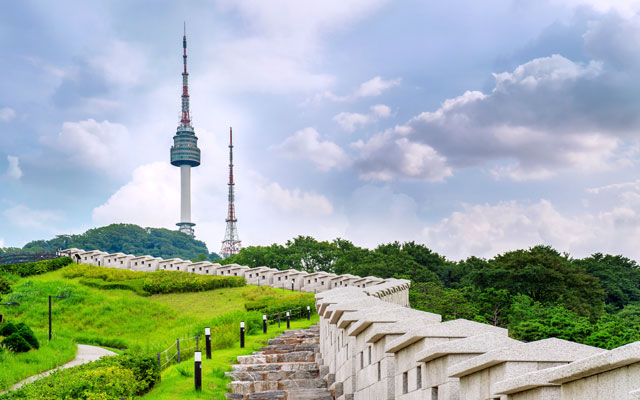Top level agencies in Seoul are rolling out a plusher welcome mat to international associations, with new and improved support schemes to boot
Seoul has been among the world’s top five cities for association meetings for years, ranked by the respected Union of International Associations (UIA). In June 2016, however, the city finally broke out of its top-five grid to take third position on the UIA charts, having hosted 891 global congresses in 2015.

Jin Hyeok Park, director of the Seoul Convention Bureau (SCB), said the city’s achievements were a result of “concerted efforts under our 2013 Seoul MICE Master Plan” which was drawn up to strengthen Seoul’s competitiveness as a business events destination.
Four years on, Seoul Tourism Organization (STO), which SCB is a division of, is still relentless in its pursuit of excellence in business events. Its efforts towards growing the number of association meetings in the city include boosting existing subvention programmes, particularly for “associations that demonstrate high-value effects in such areas as economic, environmental, educational and society”, according to Park.
“(Subvention programmes) are also being combined with our other support services to form a comprehensive package which we expect to share details in the first quarter of this year,” Park said, adding that “these expansions” are built upon existing support programmes offered by the larger Korea Tourism Organization (KTO).
Another form of financial support available to association meetings is the Seoul Unique Venue Grant, extended to qualifying events that utilises one of the 50 designated unique venues in the South Korean capital. To access this additional funding, association meetings must be held in Seoul for over two days, involve more than 50 international attendees, and have one of the activities at a designated unique venue. A grant of 10,000 won (US$8.80) per attendee (based on the number of international attendees, up to 10 million won) will be disbursed for use on receptions and rental fees, etc.
Park explained that this programme was created to satiate associations’ growing appetite for “unique and special experiences”.
“Some of these event participants have attended the same industry conference for decades now, so the addition of a “wow” factor, that sets the destination apart in a memorable way, really goes the distance,” said Park.
Besides muscling up its subvention programmes, Seoul is working closely with the eight association members of its Seoul MICE Alliance local associations segment.
Park said: “A solid and passionate local bidding committee is crucial in securing business events and STO has worked with these associations in securing events to the city, such as the 33rd Federation Internationale de l’Art Photographique Congress in 2016 and the 102nd Congress of the Universal Esperanto Association (in July 2017).”
Associations looking to meet in Seoul will also gain support from more than just their local peers.
Park said: “One of the many benefits of hosting an event in Seoul is the comprehensive support events can receive. STO and the Seoul Metropolitan Government (SMG) continually works with many national governmental agencies and organisations, such as KTO, in attracting and supporting high-value events. This includes co-supporting things like site inspections, bid support letters and financial subvention for qualifying events.”
Illustrating an example, Park said the World Forestry Congress – the world’s largest forest management conference – was won through the collective efforts of STO, SMG, KTO, the Korea Forest Service and COEX who offered comprehensive support in everything, from bidding to promotions.
Meanwhile two industry-related “clusters” coming up in Seoul are expected to bring new opportunities for more association events to the city.
One of them is the Seoul International Complex, a project slated to complete in 2023. Spanning an area of 720,000m2 from COEX to Jamsil Sports Complex, Seoul International Complex will house business event venues, hotels as well as cultural, entertainment and tourism infrastructure.
The other development is in Magok District, south-west Seoul and near Gimpo International Airport. The area is being converted into a large-scale R&D cluster, and has already attracted a number of major local corporations such as Lotte, S-Oil, LG, and more.











